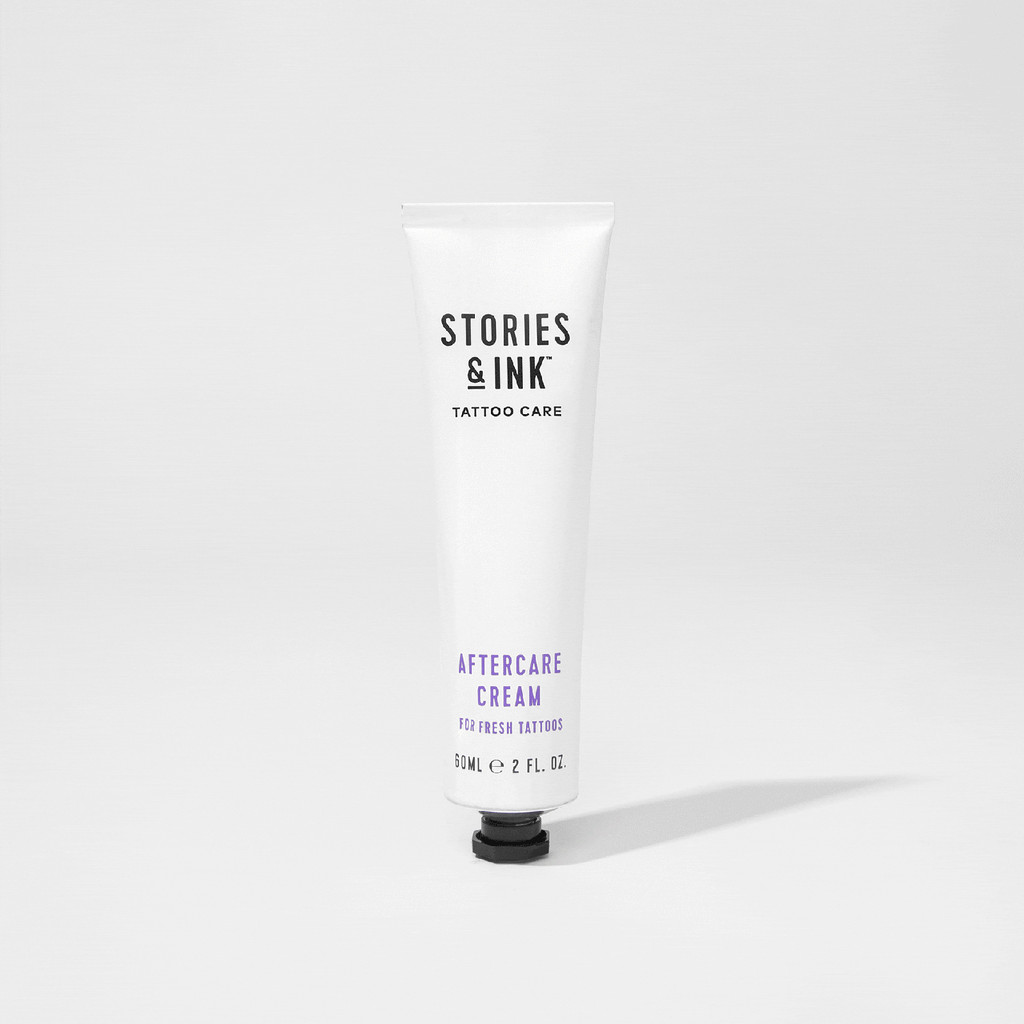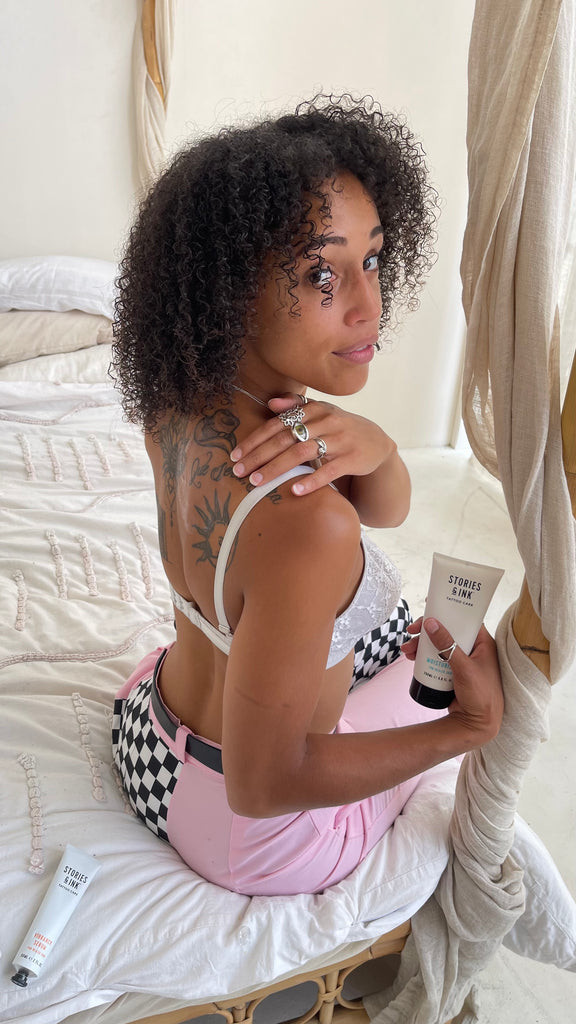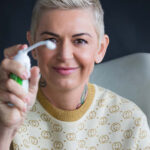Can You Scratch Your Tattoo? No, scratching a new tattoo is generally not recommended. Tattoo itching is a common part of the healing process in tattoo artistry, but luckily, tattooat.com provides guidance on how to relieve the itch without compromising your skin art. Discover expert tattoo aftercare tips to keep your ink looking vibrant. Find out how to manage the urge to itch, prevent infections, and ensure optimal tattoo healing.
1. What is Tattoo Itching and Why Does It Happen?
Tattoo itching is the irritating sensation of wanting to scratch or rub the skin around a new or healed tattoo. It is a natural response that occurs as your body works to repair the damaged skin after getting inked. Understanding why it happens can help you manage it effectively.
The intensity of tattoo itching can vary from mild to severe, with some people describing it as “itching like crazy.” This sensation arises from several factors, all related to the skin’s healing process:
- Skin Regeneration: As the skin heals, it goes through phases of scabbing, peeling, and regeneration. These processes trigger the release of chemicals that stimulate nerve endings, leading to the sensation of itchiness.
- Immune Response: The body recognizes tattoo ink as a foreign substance, activating the immune system. This response involves the release of histamines, which are chemicals known to cause inflammation and itching.
- Dryness: Newly tattooed skin tends to become dry, which can exacerbate itching. Keeping the area moisturized is crucial for alleviating this symptom.
- Nerve Healing: The tattooing process can disrupt nerve endings in the skin. As these nerves heal, they may send out errant signals that the brain interprets as itching.
It’s essential to distinguish between normal tattoo itching and signs of a potential problem. If the itching is accompanied by excessive redness, swelling, pus, or fever, it could indicate an infection or allergic reaction, requiring medical attention.
2. How Long Does Tattoo Itching Last?
The duration of tattoo itching varies from person to person, depending on factors such as skin type, tattoo size, location, and aftercare practices. On average, tattoo itching typically lasts for about one to three weeks.
During this period, the intensity of the itching may fluctuate. It might be more pronounced during the initial days after getting the tattoo and gradually subside as the healing progresses. However, it’s important to remember that everyone’s healing process is unique, and some tattoos may itch for a shorter or longer period.
Several factors can influence the duration of tattoo itching:
- Skin Hydration: Keeping the tattooed skin well-moisturized can significantly reduce itching. Dry skin is more prone to irritation, prolonging the itching sensation.
- Clothing: Wearing loose, breathable clothing can help minimize friction and irritation, which can worsen itching.
- Allergies: Allergic reactions to tattoo ink or aftercare products can prolong itching. Identifying and avoiding these allergens is essential.
- Scratching: Giving in to the urge to scratch can disrupt the healing process and prolong itching.
If the itching persists for more than three weeks or is accompanied by other concerning symptoms, it’s best to consult a healthcare professional or your tattoo artist. They can assess the situation and provide appropriate guidance.
3. Why is My Old Tattoo Itching?
While itching is common with new tattoos, old tattoos can also itch, though for different reasons. Here’s why:
- Dry Skin: This is one of the most common causes. As skin ages, it produces less oil, leading to dryness and itching.
- Allergies: You might develop an allergy to the ink years after getting the tattoo. This can cause itching, redness, and bumps.
- Sun Exposure: UV rays can damage the skin and cause old tattoos to itch.
- Weather Changes: Cold, dry weather can strip moisture from the skin, leading to itching.
- Skin Conditions: Eczema, psoriasis, or other skin conditions can affect tattooed areas.
To relieve itching on an old tattoo, moisturize regularly with a fragrance-free lotion, protect it from the sun, and avoid harsh chemicals. If the itching persists or is accompanied by other symptoms, consult a dermatologist.
4. Can You Scratch Your Tattoo? The Golden Rule of Tattoo Aftercare
No, scratching your new tattoo is a major no-no. While it’s tempting to relieve the itch, scratching can have serious consequences for your tattoo’s healing process and final appearance. Here’s why:
- Infection Risk: Your fingernails harbor bacteria, and scratching introduces these germs into the open wound of your new tattoo, significantly increasing the risk of infection.
- Scarring: Scratching damages the delicate, healing skin, leading to scarring. Scars can distort the tattoo’s design and texture.
- Ink Loss: Picking at scabs or peeling skin can pull out tattoo ink, resulting in faded or patchy areas.
- Delayed Healing: Scratching disrupts the healing process, prolonging the time it takes for your tattoo to fully recover.
Instead of scratching, there are several safe and effective ways to relieve tattoo itching. Patting or gently tapping the area can provide temporary relief without damaging the skin. Applying a cold compress can also help soothe the itch. Keeping the tattoo moisturized is essential for preventing dryness, which can exacerbate itching.
Remember, patience is key when it comes to tattoo healing. Resist the urge to scratch and follow proper aftercare instructions to ensure your tattoo heals beautifully.
5. What Happens If You Accidentally Scratch Your Tattoo?
Even with the best intentions, accidents happen. If you accidentally scratch your tattoo, don’t panic. Here’s what to do:
- Wash Your Hands: Immediately wash your hands with soap and water to remove any bacteria.
- Assess the Damage: Gently examine the scratched area. Look for signs of bleeding, broken skin, or increased redness.
- Clean the Tattoo: Wash the tattoo with mild, fragrance-free soap and lukewarm water. Pat it dry with a clean paper towel.
- Apply Aftercare Ointment: Apply a thin layer of tattoo aftercare ointment to the scratched area. This will help keep it moisturized and protected from infection.
- Monitor for Infection: Keep a close eye on the scratched area for signs of infection, such as increased redness, swelling, pus, or fever. If you notice any of these symptoms, consult a healthcare professional immediately.
Even if the scratch seems minor, it’s essential to take these precautions to prevent complications. Avoid further scratching and continue to follow your tattoo artist’s aftercare instructions diligently.
6. Safe Ways to Relieve Tattoo Itching Without Scratching
The burning question remains: if you can’t scratch, how do you relieve the maddening itch? Here are some safe and effective methods:
| Method | Description |
|---|---|
| Patting or Tapping | Gently pat or tap the itchy area with your fingertips. This provides temporary relief without damaging the skin. |
| Cold Compress | Apply a cold compress or ice pack wrapped in a clean cloth to the itchy area for 10-15 minutes at a time. The cold temperature helps numb the nerves and reduce itching. |
| Moisturizing | Keep the tattooed skin well-moisturized with a fragrance-free, hypoallergenic lotion or tattoo-specific moisturizer. Dry skin exacerbates itching, so hydration is essential. |
| Loose Clothing | Wear loose, breathable clothing to minimize friction and irritation on the tattooed skin. Tight clothing can worsen itching. |
| Oatmeal Bath | For widespread itching, an oatmeal bath can provide soothing relief. Add colloidal oatmeal to lukewarm water and soak for 15-20 minutes. |
| Antihistamines | Over-the-counter antihistamines can help reduce itching caused by allergic reactions or histamine release. Consult a healthcare professional before taking any medications. |
| Topical Steroids | In severe cases of itching, a dermatologist may prescribe a topical steroid cream to reduce inflammation and itching. Use these medications only as directed. |
| Distraction Techniques | Engage in activities that distract you from the itching sensation, such as reading, watching a movie, or listening to music. |
Remember to choose methods that are appropriate for your specific situation. If you’re unsure, consult your tattoo artist or a healthcare professional.
7. Choosing the Right Tattoo Aftercare Products
Selecting the right aftercare products is crucial for preventing itching and promoting proper healing. Here’s what to look for:
- Fragrance-Free: Avoid products with added fragrances, as they can irritate sensitive skin and cause allergic reactions.
- Hypoallergenic: Choose hypoallergenic products that are less likely to cause allergic reactions.
- Non-Comedogenic: Select non-comedogenic products that won’t clog pores, which can lead to breakouts and irritation.
- Tattoo-Specific: Consider using tattoo-specific aftercare products, as they are formulated to meet the unique needs of tattooed skin.
- Natural Ingredients: Look for products with natural ingredients like aloe vera, shea butter, and vitamin E, which can help soothe and hydrate the skin.
Avoid products containing alcohol, petroleum, or lanolin, as these ingredients can dry out the skin and worsen itching.
Here are some recommended tattoo aftercare products:
- Stories & Ink Aftercare Cream: This cream is hypoallergenic, fragrance-free, 100% vegan, and cruelty-free.
- Stories & Ink Daily Moisturizer: This moisturizer keeps tattoos hydrated and is appropriate for all skin types.
- Aquaphor Healing Ointment: This ointment is a popular choice for tattoo aftercare, as it helps protect and heal the skin.
Always follow your tattoo artist’s recommendations for aftercare products.
 Stories & Ink tattoo aftercare cream
Stories & Ink tattoo aftercare cream
The Stories & Ink Aftercare Cream is hypoallergenic, fragrance free, 100% vegan and cruelty free
8. What to Do If Your Tattoo is Itching and Raised
If your tattoo is itching and appears raised, it could be a sign of an allergic reaction or infection. Allergic reactions to tattoo ink or aftercare products can cause itching, redness, and swelling. Infections, although less common, can also lead to increased itching, accompanied by swelling and pus.
Here’s what to do if your tattoo is itching and raised:
- Wash the Tattoo: Gently wash the tattoo with mild, fragrance-free soap and lukewarm water. Pat it dry with a clean paper towel.
- Apply a Cold Compress: Apply a cold compress to the affected area for 10-15 minutes at a time. This can help reduce swelling and itching.
- Avoid Scratching: Resist the urge to scratch the tattoo, as this can worsen the condition.
- Consult a Healthcare Professional: If the itching and swelling persist or are accompanied by other symptoms, consult a healthcare professional for proper diagnosis and treatment.
They may recommend antihistamines to reduce itching or antibiotics to treat an infection. In severe cases, they may prescribe a topical steroid cream to reduce inflammation.
It’s essential to seek medical attention if you suspect an infection or allergic reaction. Early treatment can prevent complications and ensure your tattoo heals properly.
9. Can You Slap Your New Tattoo for Relief?
While the idea of slapping your new tattoo for relief might seem appealing in the heat of the moment, it’s generally not recommended. Though it may provide temporary relief from itching, it can potentially damage the healing skin and lead to complications such as scarring or ink loss.
Slapping can cause trauma to the skin, disrupting the healing process and increasing the risk of infection. It can also cause the tattoo ink to spread or fade, affecting the final appearance of your tattoo.
Instead of slapping, opt for safer methods of relieving tattoo itching, such as patting, applying a cold compress, or moisturizing. These methods can provide relief without damaging the skin.
10. Addressing Other Potential Causes of Tattoo Itching
While the healing process is the most common cause of tattoo itching, other factors can contribute to this annoying sensation. By identifying and addressing these potential causes, you can better manage your tattoo itching and promote overall skin health. Here are some additional considerations:
- Environmental Factors: Dry air, cold weather, and exposure to harsh chemicals can all strip moisture from the skin, leading to itching. Use a humidifier to maintain moisture levels in your home, wear protective clothing in cold weather, and avoid harsh chemicals.
- Skin Conditions: Eczema, psoriasis, and other skin conditions can cause itching and inflammation in tattooed areas. Consult a dermatologist for diagnosis and treatment.
- Allergies: Allergies to tattoo ink, aftercare products, or even certain foods can trigger itching. Identify and avoid potential allergens.
- Stress: Stress can exacerbate skin conditions and worsen itching. Practice stress-reducing techniques like yoga, meditation, or deep breathing.
By addressing these potential causes of tattoo itching, you can take a proactive approach to managing your skin health and ensuring your tattoo heals beautifully.
 Woman applying tattoo aftercare cream
Woman applying tattoo aftercare cream
Moisturising regularly helps keep the skin hydrated, reducing dryness and itchiness
11. Tattoo Itching FAQs
Here are some frequently asked questions about tattoo itching:
- Is tattoo itching normal?
Yes, tattoo itching is a normal part of the healing process. - How long does tattoo itching last?
Tattoo itching typically lasts for one to three weeks. - Can I scratch my tattoo?
No, scratching your tattoo can damage the skin and increase the risk of infection. - What can I do to relieve tattoo itching?
You can relieve tattoo itching by patting, applying a cold compress, or moisturizing. - What should I use on my new tattoo?
Follow your tattoo artist’s aftercare instructions and use recommended tattoo aftercare products. - What should I use on old tattoos to stop itching?
Moisturize regularly with a fragrance-free lotion and protect your tattoo from the sun. - Why is my old tattoo itching?
Old tattoos can itch due to dry skin, allergies, sun exposure, or weather changes. - What are the signs of an infected tattoo?
Signs of an infected tattoo include increased redness, swelling, pus, or fever. - When should I see a doctor about my itchy tattoo?
See a doctor if the itching persists, is accompanied by other symptoms, or if you suspect an infection or allergic reaction. - Can tattoo itching affect the appearance of my tattoo?
Yes, scratching can damage the skin and affect the final appearance of your tattoo.
12. Where to Find More Information and Inspiration
Ready to dive deeper into the world of tattoos? Here are some resources to explore:
- tattooat.com: Discover a wide range of tattoo designs, find talented artists, and learn about tattoo aftercare.
- Inked Magazine: Stay up-to-date on the latest tattoo trends, artist interviews, and industry news.
- Portland State University’s Art Department: Explore academic research on the history and cultural significance of tattoos.
- Tattoo Conventions: Attend tattoo conventions to meet artists, see live demonstrations, and get inspired.
- Social Media: Follow tattoo artists and enthusiasts on social media platforms like Instagram and Pinterest for daily inspiration.
Conclusion: Embrace the Itch (Responsibly!)
Tattoo itching is an unavoidable part of the tattoo experience, but it doesn’t have to be unbearable. By understanding the causes of itching, following proper aftercare instructions, and avoiding scratching, you can ensure your tattoo heals beautifully and remains a source of pride for years to come.
Remember, patience is key. Resist the urge to scratch and focus on providing your tattoo with the care it needs to heal properly. With the right approach, you can successfully manage tattoo itching and enjoy your new ink to the fullest.
Ready to find your dream tattoo design, discover talented artists, and learn everything you need to know about tattoo aftercare? Visit tattooat.com today and embark on your tattoo journey!
Address: 1825 SW Broadway, Portland, OR 97201, United States
Phone: +1 (503) 725-3000
Website: tattooat.com
